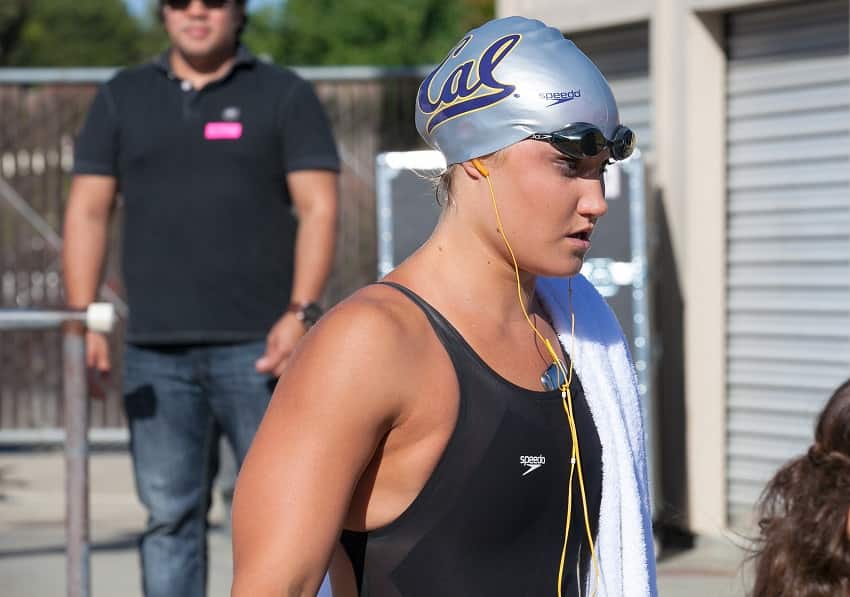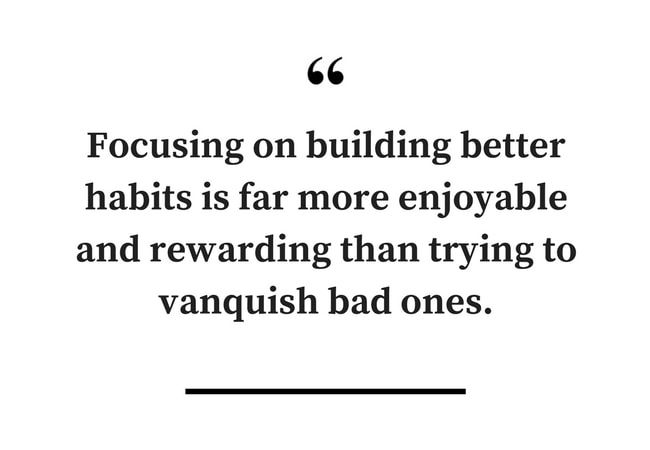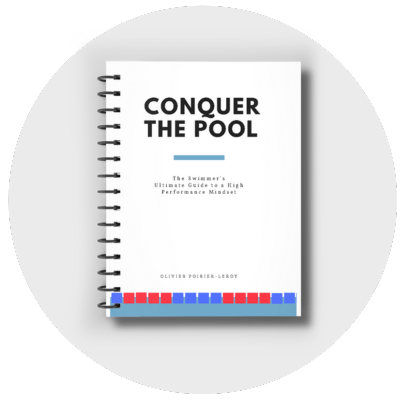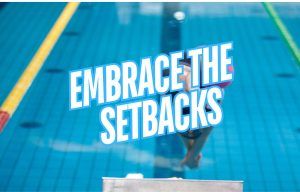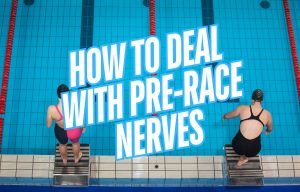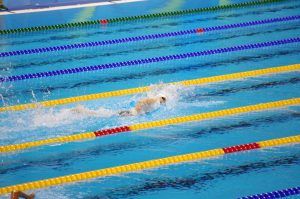Our habits predict how well we train today and how we race tomorrow. Here’s how to cultivate better habits in and out of the water.
We talk a lot about habits on this site (like here, here and here). And with good reason.
Habits, good and bad, make up our swimming.
Our technique is essentially a collection of habits. Where we position our hand on entry. How far out we pull. The roll of our hips when we push through the stroke cycle. These things are refined and grooved into our muscles and brain over the course of countless laps and practices.
Our performance on race day is a group of our habits as well. When the starter’s gone goes off our mind (should) go blank and we revert to what we have practiced over and over again in practice. The way we swim in competition is a direct reflection of the way we train in practice.
And of course, the same goes for the things outside of the pool. The food we choose to put into our bodies. The daily things we do for recovery. How much sleep we get each evening.
But if you are struggling with conquering a bad habit and keep falling back into the same old unproductive lines of behavior—whether it’s staying up too late, eating poorly, or showing up late to practice, there’s a better way to go about boosting your habits.
The key in fixing bad habits is creating new ones to overlap the not-so-great ones.
Building a Positive Habit is More Fun than Wrestling with Bad One
When we approach our habits with the mindset of, I’m going to build something new and awesome we feel motivated. Excited. The novelty and sense of possibility is galvanizing.
It feels good to work on developing and building something, because we see progression and improvement.
“Avoidance” goals and habits, on the other hand, have us in a position where we are simply trying to maintain the status quo.
Whether it’s not getting enough sleep at night, eating like garbage, spending too much time on our smartphone, or not working hard enough at practice. The motivation is in what we can’t and shouldn’t do. Don’t do this. Don’t do that.
Unsurprisingly, when we are told not to do something we experience resistance. We hate being told not to do something, even when it’s us that’s doing the telling. No one likes being scolded, it doesn’t even matter if it’s us that is doing the scolding.
Tell me not to order pizza and watch Netflix late into the night and it simply makes me want to do it 25% more. (Possibly 45% depending on how the day is going.)
Focusing on avoidance goals and habits also makes the process less fun, less rewarding, and even chips away at our self-confidence and self-esteem. (Science! More science!)
Making the pivot of focus from the bad habits to new, better habits makes positive change and more constructive decisions easier in the pool and on deck.
It gives you something to accomplish instead of something to avoid.
Here are some examples of bad habits that are transitioned into good habits (along with the benefit of building that new habit):
- Stop eating junk food at lunch > Pack a healthy lunch in the morning. I’ll feel better and more energetic.
- Stop staying up so late > Put together a “good night” routine and start it at the same time each night. It will be nice to feel like I have control of my pre-bed routine.
- Less time on my smartphone > Read a book that I’ve been itching to get after. It will give me a sense of calm to disconnect from social media and get lost in a book for a while.
- Stop giving up mentally during hard sets > When things get tough, I’ll focus on working hard one lap at a time. Doing this will help me piece-meal progress and my effort.
In Closing
Our habits are powerful and complex.
They are so pervasive in our lives that we don’t think about them most the time. But they are there, running in the background like apps on your smartphone, quietly churning away.
They dictate how we perform on the daily, as well as in competition. Getting a handle on them can help put our swimming and lifestyle on a type of auto-pilot that pushes us hysterically further along towards our goals in the water.
When you want to conquer that bad habit, remember:
- Keep them positive. Focus on building better routines and habits. Building something new is a metric ton more enjoyable than trying to suppress a bad habit. The positive nature of your new habit is more motivating than starting each day at a sense of status quo that you have to keep. Don’t replace one bad habit with a new negatively themed habit.
- Think of your new habits as overwriting the old, negative habits. It can be tempting to get wrapped up in the negative cycle of lapsing into our bad habits. It sucks enough that the habit is there, but we end up suffering over the fact that we succumbed to the bad habit again, propelling a brutal feedback loop that can be hard to get out of. Instead of trying to break this new habit, overwrite it with something new and improved.
- Write out the benefit(s) of building those new awesome habits. Intuitively understanding that eating better is good for you is nice, but writing it out makes it more real and gives you confirmation of the awesomeness awaiting you with that new habit. Knowing something is good for you is one thing, but articulating the benefits it provides you is next-level.
More Stuff Like This:
This Mental Training Workbook Will Help You Swim Like a Rock Star This Season. Confused about mental training? Want to unleash pro mode on your swimming this year? Learn how this mental training workbook will change your mindset and help you pummel your PB’s this season.
Why You Should Be Grading Your Effort After Practice. One of my favorite ways to stay consistent and accountable in practice is this simple technique. Takes about three seconds, and will keep you honest about the effort in the water.

